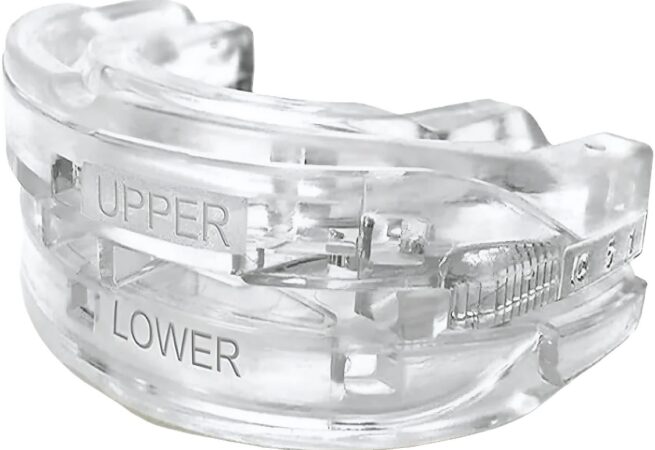

Sinus & ENT Specialist Singapore – Tonsillitis 101: What To Know In A Tonsil Removal and ENT Clinic
The human body is a complex organism, and as such, it can be prone to a variety of different ailments. One of the most common is tonsillitis, a condition that affects the throat and can cause intense pain and discomfort. Tonsillitis in Singapore is a problem that affects many people in the region, and it is important to be aware of the treatments available to address this issue. In this article, we will discuss the causes, symptoms, and treatments for tonsillitis in Singapore, as well as the importance of visiting an Ent Clinic in Singapore and finding an experienced ENT doctor in Singapore.
What is Tonsillitis in Singapore?
Tonsillitis is an inflammation of the tonsils, which are small glands located at the back of the throat. It is one of the most common illnesses in children and adults, and it is usually caused by a virus or bacteria. It is a highly contagious condition and can be spread through coughing, sneezing, and direct contact.
Symptoms of tonsillitis in Singapore can include sore throat, fever, difficulty swallowing, and swollen lymph nodes. In some cases, the tonsils may even become enlarged, leading to a condition known as tonsillar hypertrophy. Recurrent tonsillitis can be a source of significant discomfort and can interfere with daily activities, such as eating and sleeping.
Tonsil Removal Singapore
Tonsillectomy, also known as tonsil removal, is a surgical procedure that involves removing the tonsils, which are two small, round structures located at the back of the throat. Tonsillectomy is typically performed to treat recurrent tonsillitis, sleep apnea, and other conditions that affect the tonsils.
During the procedure, the patient is typically placed under general anaesthesia, which means they will be asleep and unaware during the surgery. The surgeon will use specialised tools for tonsil removal through the mouth. The procedure usually takes less than an hour to complete.
The recovery period can vary depending on the patient’s age, overall health, and the reason for the tonsillectomy. In general, most patients can return to their normal activities within two weeks following the surgery.
Ent Clinic Singapore and Ent Doctor Singapore
An ENT clinic in Singapore is a form of a specialised clinic that focuses on treating ear, nose, and throat conditions. It is staffed by experienced ENT doctors who are highly trained in diagnosing and treating tonsillitis Singapore and other conditions. During your visit, a professional ENT doctor in Singapore will assess your condition and take a detailed medical history. They will then recommend the best course of action, which may involve medication, lifestyle changes, or in some cases, tonsil removal.
Tonsillitis Singapore: Prevention and Treatment
The best way to prevent tonsillitis in Singapore is to practise good hygiene, such as washing your hands regularly, avoiding close contact with those who are ill and avoiding sharing cups, utensils, and other items. If you do develop symptoms of tonsillitis in Singapore, it is important to seek medical attention as soon as possible. Treatment typically involves rest, fluids, and medication to reduce the symptoms. In some cases, Ent Doctor Singapore may recommend tonsil removal.
Conclusion
Tonsillitis in Singapore is a common condition that affects people of all ages. It is important to be aware of the symptoms and treatments available. If you are suffering from recurrent tonsillitis in Singapore, it is important to visit Ent Clinic Singapore and consult with an experienced Ent Doctor in Singapore. They will be able to assess your condition and recommend the most effective course of action.
If you are looking for expert ENT services and other related treatment, visit Dr Gan’s website or contact us!

Which substance causes ototoxicity?
The ability to listen to sound is indeed a blessing. You should take care of your health and always remember that the ear is also part of health. Taking care of the ear is more than just making sure it is clean visibly but also to take care of the inside of the ear. In this article, we will be learning about ototoxicity, a condition that affects the ear and can affect the ability for humans to listen well.
Ototoxicity refers to damage to the hearing as a result of medication or exposure to chemicals that affect the inner ear. Since it affects the inner ear, ototoxicity may even cause damage to balance. To better understand how ototoxicity affects the inner ear, it is best to understand a bit more on how sound is perceived by humans and how it makes us able to listen to the many sounds in the world.
When there is a sound, the sound is transferred into the ear canal. This will cause the eardrum to move or vibrate. The vibration will then be transferred to the ossicles or known as the tiny bones in the middle ear. This ossicle amplifies the sound and sends them to cochlea in the inner ear. The cochlea is a snail-shaped structure filled with fluid. The movement of fluid makes the hair cells in the cochlea transfer the sound information in electrical signals to the brain. The brain will then translate this information into recognizable and meaningful sound.
Hence, how does ototoxicity affect the ear? Basically, most of the ototoxicity substance affects the inner ear structure such as cochlea. As mentioned, cochlea works to transfer information received, which is sound in the form of electrical signals to the brain. Hence, ototoxicity in many cases affects the hair cell’s ability. Another reason why ototoxicity may affect balance is the vestibular system is affected. The vestibular system is the organ balance located in the inner ear. Hence, when ototoxicity happens, it may affect this structure as well.
Symptoms of ototoxicity can vary as the condition itself can be reversible or irreversible. Thus, conditions can be temporary or permanent. This includes no hearing problems at all, minimise hearing loss, ringing in the ear (tinnitus), hearing loss that occurs in one or both ears but typically both ears, deafness and imbalance. Light-headedness, disoriented, dizzy and frequent headaches can also be symptoms of ototoxicity.
There are more than 200 medications and chemicals that are known to cause ototoxicity. With the large number of substances that already has been proved to be ototoxic, you probably wonder if the medication you are taking or chemicals you are constantly exposed to are potentially an ototoxic. Below are the some of the substances that has been proven to be potentially be ototoxic:
1) Aminoglycosides antibiotics such as gentamicin
2) Macrolides antibiotics such as erythromycin, azithromycin and clarithromycin
3) Glycopeptide antibiotics such as vancomycin
4) Cancer chemotherapy drugs such as cisplatin and carboplatin
5) Salicylate pain reliever such as aspirin
6) Quinine
7) Loop diuretics such as furosemide, bumetanide and ethacrynic acid
8) Solvents such as trichloroethylene, ethylbenzene and toluene
9) Carbon monoxide
10) Hydrogen cyanide
11) Tobacco smoke
12) Nitriles
13) Metals and compounds such as mercury compounds and lead
It is worth noting that the above-mentioned substance can either be causing temporary or permanent, and reversible or irreversible ototoxicity. Thus, it is important to discuss with a doctor if there is potential for hearing or balance damage as a result of taking medication. At times, there are so few treatments available and the only treatment available is that particular medication which should offer some hope for curing life-threatening disease or stopping a very dangerous infection. Exposure to loud sounds or noise while taking certain medication may increase the damaging effect.
Beside those taking medication, some of the people that work with chemicals that are ototoxic should be careful when handling these substances. Those responsible for ensuring the worker is safe such as employers and those working as OSH (Occupational Health and Safety) staff should play their role in minimising the risk of ototoxicity affecting their worker. This includes proposing prevention steps such as reviewing and identifying ototoxic substances, providing health and safety information to workers, replacing hazardous chemicals with less toxic ones and to ensure the appropriate PPE (Personal Protective Equipment) is provided and used while working. Any complaints regarding hearing loss should be investigated and to be taken care of by a medical officer immediately.
In essence, ototoxicity is more than a condition that affects the hearing but also may impact balance. It is impossible to completely eliminate all ototoxic substances as some of them are the only choice available. When there are any symptoms or signs of ototoxicity, the patient should get checked by a doctor. It is best to get checked immediately so that treatment is able to either return the hearing or balance function and to stop a potential major damage of the inner ear function.












